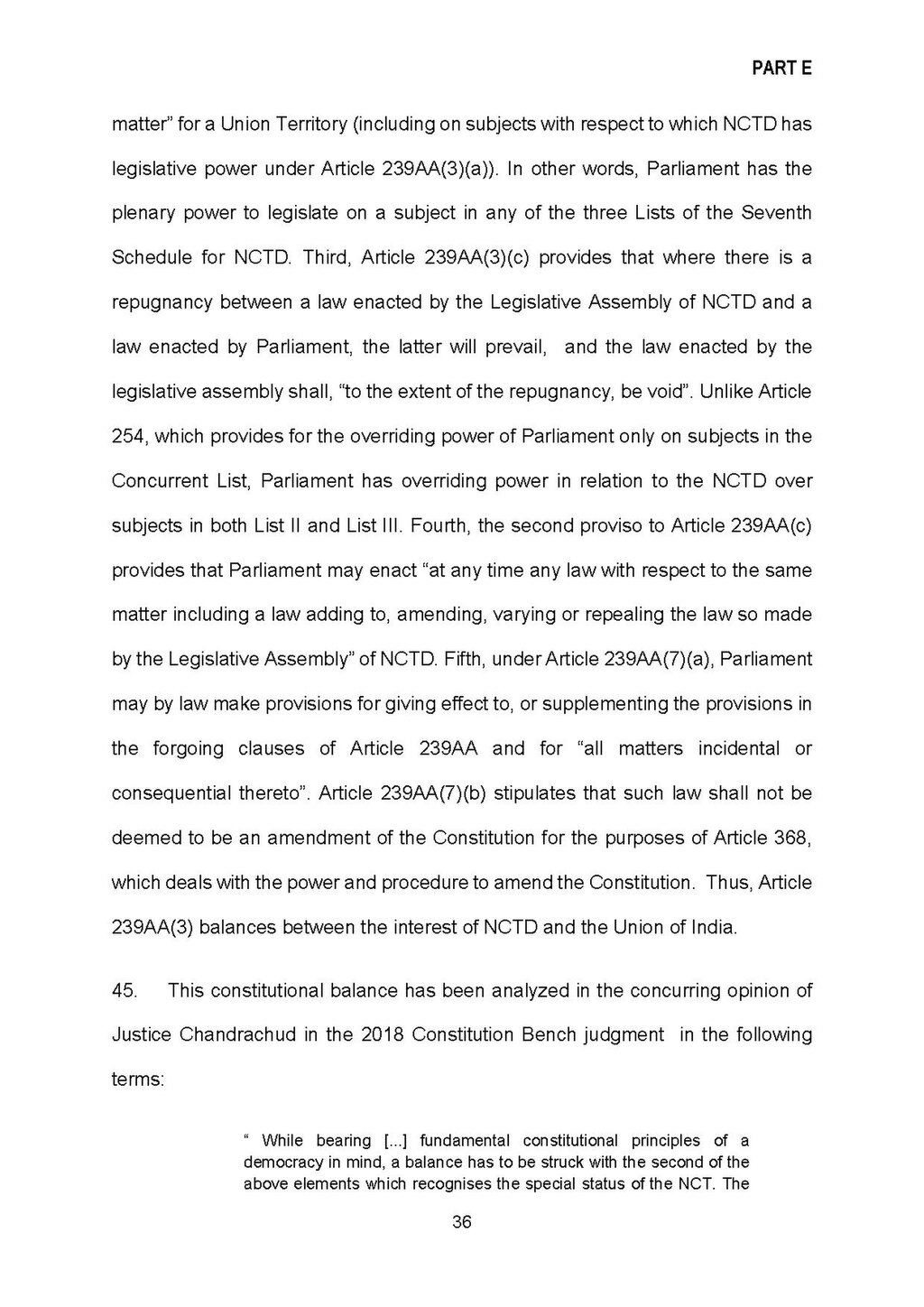matter” for a Union Territory (including on subjects with respect to which NCTD has legislative power under Article 239AA(3)(a)). In other words, Parliament has the plenary power to legislate on a subject in any of the three Lists of the Seventh Schedule for NCTD. Third, Article 239AA(3)(c) provides that where there is a repugnancy between a law enacted by the Legislative Assembly of NCTD and a law enacted by Parliament, the latter will prevail, and the law enacted by the legislative assembly shall, “to the extent of the repugnancy, be void”. Unlike Article 254, which provides for the overriding power of Parliament only on subjects in the Concurrent List, Parliament has overriding power in relation to the NCTD over subjects in both List II and List III. Fourth, the second proviso to Article 239AA(c) provides that Parliament may enact “at any time any law with respect to the same matter including a law adding to, amending, varying or repealing the law so made by the Legislative Assembly” of NCTD. Fifth, under Article 239AA(7)(a), Parliament may by law make provisions for giving effect to, or supplementing the provisions in the forgoing clauses of Article 239AA and for “all matters incidental or consequential thereto”. Article 239AA(7)(b) stipulates that such law shall not be deemed to be an amendment of the Constitution for the purposes of Article 368, which deals with the power and procedure to amend the Constitution. Thus, Article 239AA(3) balances between the interest of NCTD and the Union of India.
45. This constitutional balance has been analyzed in the concurring opinion of Justice Chandrachud in the 2018 Constitution Bench judgment in the following terms:
“ While bearing [...] fundamental constitutional principles of a democracy in mind, a balance has to be struck with the second of the above elements which recognises the special status of the NCT. The
36
